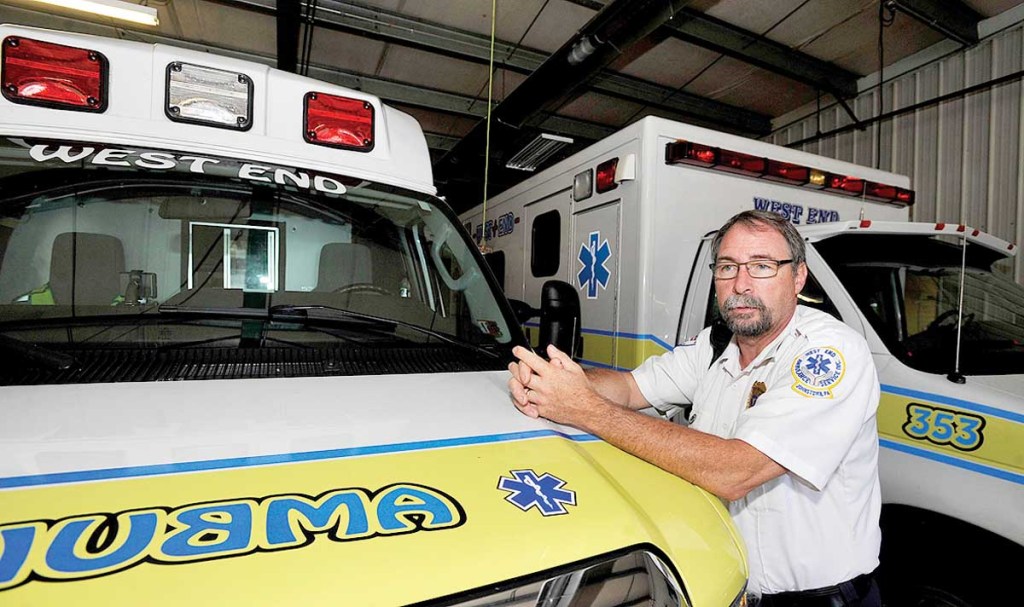Pennsylvania ambulance service asking overdose victims their preferred funeral home for ‘next time’
Published 3:00 pm Friday, October 28, 2016

- Ira Hart, manager of West End Ambulance Service in Johnstown, Pennsylvania, said his team now hands out cards to overdose victims they assist in the hopes of convincing them to get help with addiction.
JOHNSTOWN, Pa. — A southwest Pennsylvania ambulance service is adopting a new “scared straight” approach when treating drug overdose patients.
West End Ambulance Services is a privately funded, non-profit emergency service, whose medical personnel will soon start asking drug overdose patients to list their preferred funeral home, just in case the ambulance doesn’t make it in time to save them from their next overdoses.
Ira Hart, manager of the Johnstown ambulance service, said he hopes the new program provides drug addicts with “a stark realization of what could happen.”
Each time a patient is picked up for a drug overdose, West End’s medical personnel will hand the patient a card designed to inform their recipients of just how close they came to dying.
“Today you were ‘One Breath from Death’ due to a drug overdose,” the message warns.
It is printed on a pale blue sheet of paper that, Hart said, matches a typical heroin overdose patient’s skin tone.
“The color of this card shows the color you were when we found you,” the cards read.
And: “If you wish to continue to use drugs please fill out the reverse side of this card and keep it with you at all times. This information will be very useful to us in the future as we may not make it there next time for your last breath.”
The back of the form includes space for the recipient to write down his or her name, an emergency contact’s information and the name of a preferred funeral home.
“It’s just been bothering me for a long time, this epidemic we’re faced with,” Hart said. “If I can get something across to a kid, or to someone we bring back from an overdose, to get them to realize how serious this is, I’ll do it.
“I’m not putting (overdose patients) down,” he said. “I’m giving them a shot of reality. You were one breath from death.”
Currently, there is no definitive proof that programs like Hart’s work, and there is little evidence that supports the effectiveness of scare tactics in drug prevention, according to a 2008 study conducted by Prevention First.
Regardless, Hart said the problem has become so widespread and frustrating, that they are willing to do whatever it takes to get through to at least one person.
“I’m mainly using this as a vehicle for open communication and contact with somebody.” Hart said. “It gives us a way to open the lines of communication and to actually talk to them about it.”
He hopes to expand soon to create an educational program on the realities of the heroin epidemic.
“I’ll take it to the schools. I’ll take it everywhere,” he said. “They need to realize how bad it really is.
“It’s not to demean anyone or put their problem down. This is truly a disease that’s reached epidemic proportions. If we can get through to just one person, it’s well worth our efforts.”
Berkey writes for the Johnstown, Pennsylvania Tribune-Democrat.





